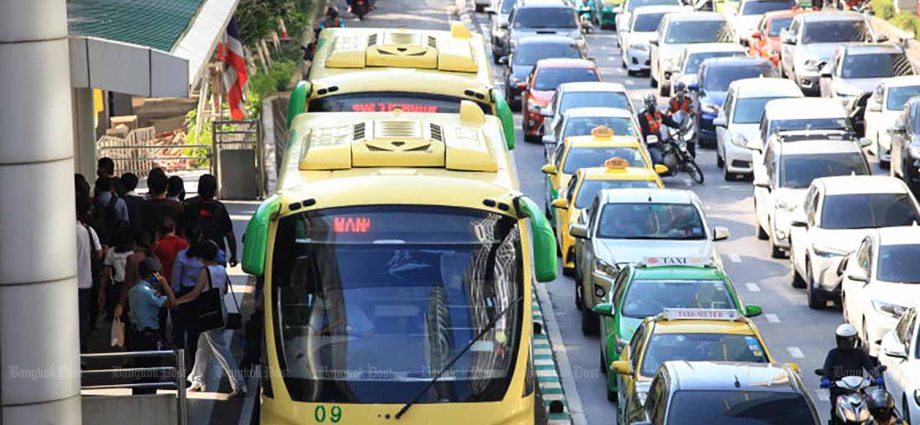
The Bangkok Metropolitan Administration (BMA) will continue the city’s Bus Rapid Transit (BRT) service when the concession granted to Bangkok Mass Transit System Plc (BTSC), a private operator of the service, ends on Aug 31.
BMA has a plan to improve the service, according to Bangkok Governor Chadchart Sittipunt. He told Isara News Agency the BMA plans to increase the number of BRT bus stops and the number of buses to improve convenience for passengers.
Currently, only 10 out of all 25 BRT busses are functioning which is why passengers have to wait for at least 15 minutes to board at present, he said.
In addition, many private cars drive in lanes reserved for the BRT service, especially during rush hour on Rama III Road, leading to delays in the BRT service.
He said BMA plans to increase the frequency of the service and will add more BRT stops near pedestrian crossings, which has proved effective in improving convenience for feeder-service passengers in South Korea. The BMA intends to adopt the same technique.
It also plans to use smaller-size buses with electric power, he said.
“We will not stop the BRT service. We will improve it,” he said.
A BMA source said a 13-million-baht budget has been set aside for hiring a company to operate the BRT and provide maintenance, and will hire other staff such as maids and security guards.
The BMA expects to have a new operator within the next month, or before the concession ends, he said. Under the present concession, BRT collects a 15 baht fare from 9,000-10,000 passengers a day, while BTSC gets its revenue from advertising fees, said the source. The operator, however, has expressed no interest in seeking to renew the concession as the service is unprofitable, he said.
At present, the BRT route stretches 16km from Narathiwat Ratchanakharin Road to the Ratchada-Ratchaphruek intersection, allowing passengers to connect to the BTS at Chong Nonsi and Talat Phlu stations.


